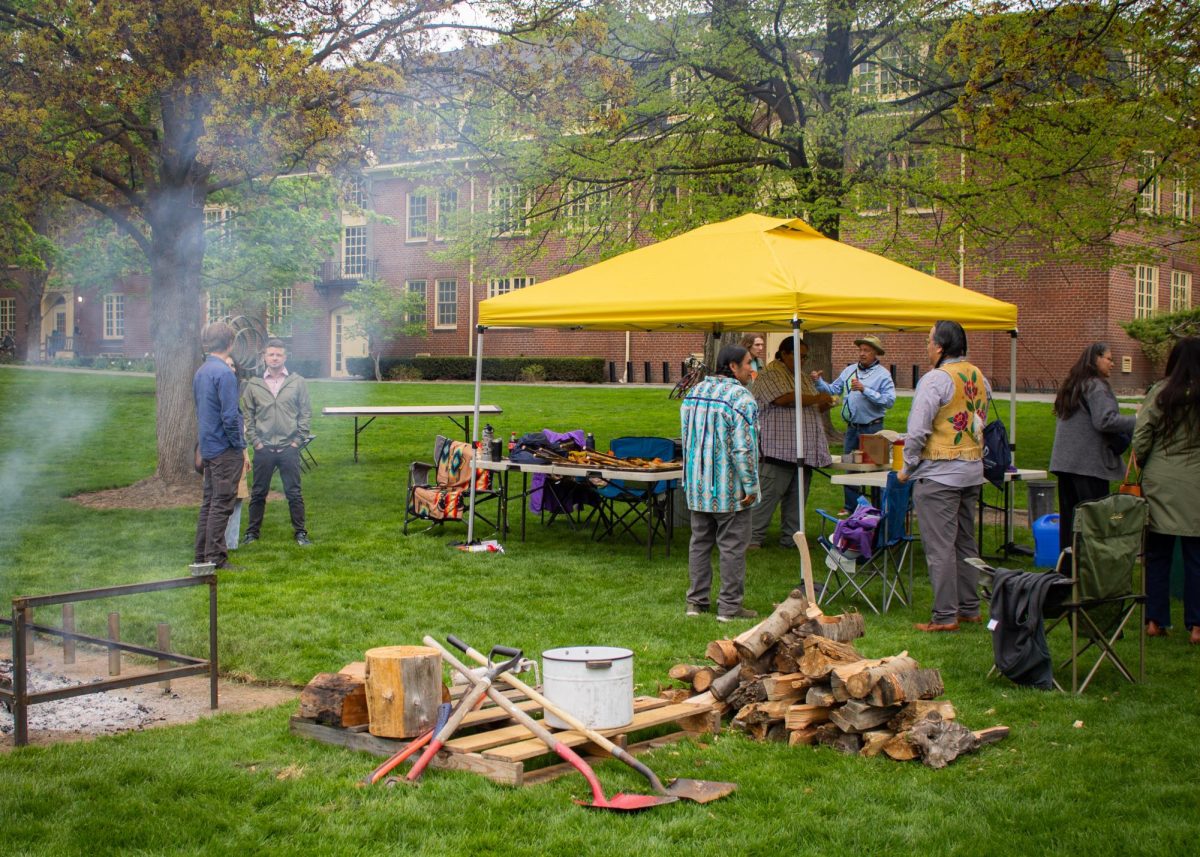It is not often that a documentary film influences the very story it depicts. Pamela Yates’s documentary “Granito: How to Nail a Dictator,” actually helped to indict the dictator EfraÃn Rios Montt, whose atrocities the film captured. The documentary was shown in Olin 130 on Tuesday, Feb. 18. The film served as a predecessor to the documentary film workshop given by Yates, the film’s director, and producer Paco de Onis, on Wednesday, Feb. 19.
“Granito” tells the story of how footage from Yates’s first documentary, “When the Mountains Tremble,” was used in the January 2012 trial against the military and the Guatemalan government for the Guatemalan genocide. By retelling the history of the genocide through the lens of the Mayan people, “When the Mountains Tremble” reveals the lesser-known people’s history. The film publicly acknowledges the struggle of those who were and continue to be affected by the genocide. Furthermore, the footage served as forensic evidence against former dictator Rios Montt in the charges of genocide.
“It’s pretty remarkable to have the acknowledgment of 200,000 deaths ride on a bit of footage that [Yates] miraculously gained accesses to … and that’s an incredible amount of weight,” said Johnson Visiting Instructor in Race and Ethnic Studies Jennifer Devine.
Yates’s footage was used in the trial against Rios Montt, where he was sentenced to 30 years in prison on charges of crimes against humanity and genocide. The ruling made human rights history; it was the first time a former head of state faced these charges within his or her own country. However, the case was annulled due to a technicality and will be resumed in 2015.
During the genocide, the United States continually sent foreign aid to Guatemala, which went directly to Montt and supported the army that killed around 200,000 people. Senior Hannah Palkowitz, an environmental studies-sociology major who helped bring Yates and Onis to campus, spoke to the importance of recognizing the role of the United States during this time in history.
“By bringing the film here, we’re able to facilitate and attract attention to this issue. [Currently], it’s important to realize that this is not only what happened with one policy, but how it’s manifested in [the] present day… It’s important to acknowledge that as U.S. citizens,” she said.
By bringing the producer, director and the film to campus, Palkowitz hopes to spread awareness of these types of hidden histories.
“They are great people to bring to campus because it touches on so many disciplines and it presents awareness on history that has sometimes been forgotten,” she said.
“When the Mountain Trembles” is unique in that it influenced history rather than simply retold it. The film serves as an example of “granito de arena,” which is the Maya concept Yates and Onis weaved into the film “Granito.”
“It means ‘tiny grain of sand,’ and is a Maya concept that means each of us have something to contribute to positive social change and how it takes a lifetime … it’s a communal value. In the telling of the Granito story, I call upon that [concept of ‘granito de arena,’]” said Yates.
Not only is it an example of a successful grassroots movement, the film also brings to light the importance of storytelling, especially through film.
“Filmmaking is the storytelling of our time; they tease out the universal themes that we can connect to. Stories are how we understand ourselves, define ourselves … We use film to the end in a same way that a lawyer might use the law, and we have made this model of a film ecosystem,” said Onis.
According to Onis, this ecosystem involves websites and outreach programs attached to their documentary filmmaking.
“This has opened up a whole area of document filmmaking. We have drifted from the Hollywood model; we make [these films] for the passion of the issue,” Onis said.
Part of the ecosystem includes the workshop that took place this Wednesday, Feb. 19. Both Onis and Yates spoke to the passion that is required when jumping into documentary filmmaking.
“I would say that documentary filmmaking is not a career. It is a calling. It’s a serious commitment,” Yates said.








